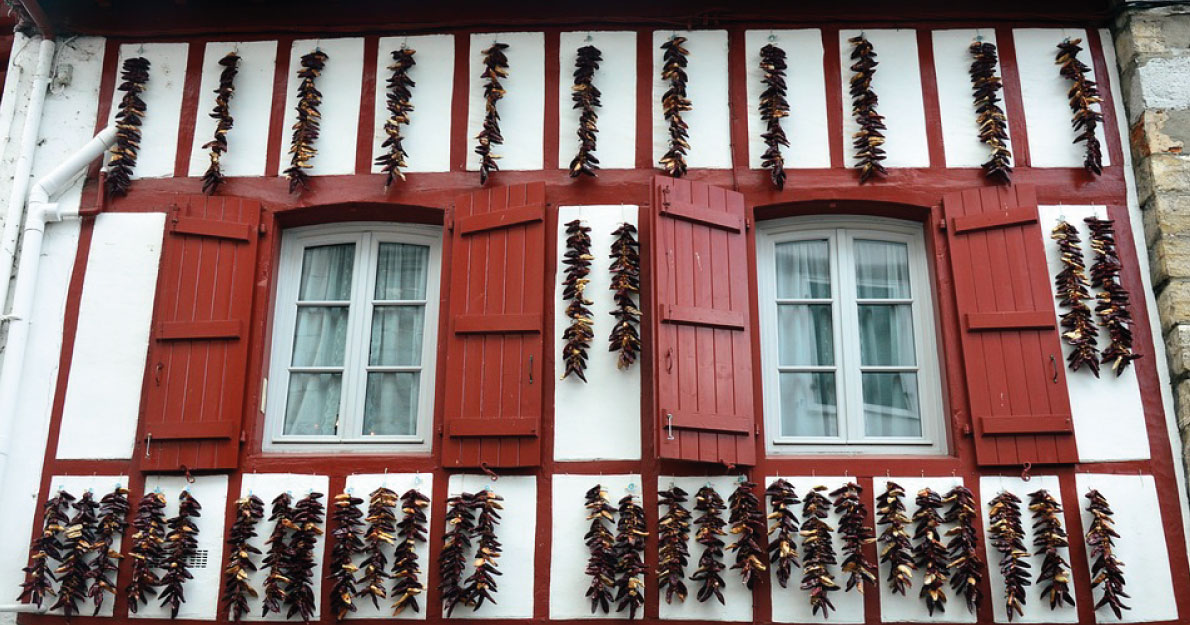
Discover the Basque Country, between culture and gastronomy
Discover the Basque Country, a region rich in history, heritage and culture on the Atlantic coast.
Published on 9/25/2018
Share :

Discover the Basque Country, a region rich in history, heritage and culture on the Atlantic coast.
Published on 9/25/2018
Share :
Once an unexplored area, the Basque Country is today an attractive region that draws more and more tourists during the summer season. The Basque Country is considered to be one of Europe's oldest and richest regions in terms of culture and heritage and features on many travel itineraries.
Treat yourself to a stay in the Basque Country and a magnificent journey between its modern cities and picturesque villages in the heart of green landscapes. Visit the dynamic cities of the Spanish Basque Country like Bilbao, San Sebastian or Guernica. Enjoy and discover Basque cuisine and its world-renowned gastronomic culture. The Basque Country has plenty to delight its visitors!
The Basques are said to be the descendants of the first men from the west, whose discovery of the dolmens in the megalithic Basque Country and the rock paintings are testimony to the occupation of the region. When the Romans invaded the Iberian Peninsula, the Basque people were immersed in Roman civilisation by collaborating with the empire.
The history of the Basque Country reached its peak around the year 1000 under the reign of Sancho III, which even extended as far as Bordeaux. It is the only time in history when the Basque people were united under a single political entity.
After the First World War, the Basque Country was the most important economic and industrial centre in Spain. The advent of the Second Republic polarised political movements and did not spare the Basque region which, like the rest of Spain, suffered the devastation of the civil war preceding the victory of Franco and his dictatorship.
The Basques paid dearly for their opposition to the General, notably with the destruction and bombing of Guernica killing more than 1,500 people, a tragic scene immortalised by the painter Pablo Picasso. You can admire the remains and Picasso’s work during a visit to the city of Guernica and its Peace Museum.
Straddling France and Spain, the question of the identity of the Basque people has always been the subject of heated debates and numerous conflicts.
A people settled for centuries, the debate as to its exact origin is still current today. The culture and heritage of the Basque Country are found in this character which is so original and specific to the region and its people. Uniquely, Basque culture has retained its identity despite the many administrative, legal and linguistic divisions to which it is subject. As a “country without borders”, the region is defined by the identity of a culture, language and the traditions of the Basque Country.
The name that the Basques give to their territory, Euskal Herria, literally means “the country where the Basque language is spoken”. When you visit the Basque Country, you will discover that this region is identified, in the past as it is today, according to movements in political opinion. Even today, lively debates about the very concept of countries often occur in the Iberian political landscape.
Spanish, French or Basque, this question of identity, which can sometimes unleash collective passions, has animated the political and social life of the Basque Country for decades or even centuries.
The history of the Basque Country and the origins of its culture and language have long been a mystery. However, the cultural life of the Basque Country is clearly visible through the many music and dance groups, festivals, gastronomic specialities and terroirs (regional growing charcateristics), all celebrated by a proud Basque people. Visiting the Basque Country region is an opportunity to discover this diverse and firm cultural identity.
With a fully burgeoning culture, the Basque Country has become an essential tourist destination in France and Spain. The capital of the Basque Country, Bilbao, is gradually becoming a major centre of culture, design and architecture in Europe. When visiting the Basque Country, be sure to stay in Bilbao and to visit the Guggenheim Museum, the leading tourist destination in the region.
Also, during your stay, don’t miss out on a visit to San Sebastian, gastronomy capital of the Basque Country. Two of the city's restaurants are in the top 10 of the 50 best restaurants in the world, and seven of Bilbao's restaurants total 15 Michelin stars. San Sebastian is an unmissable stop, found in gastronomic tourist guides and is a landmark for those who love restaurants with a historical and heritage background.
Then discover the vineyards of La Rioja, the best winegrowing region in Spain. Discover the vineyards of the Basque Country and the picturesque villages inland. The region is also a myriad of beautiful small villages.
The villages of the French Basque Country are scattered along the Atlantic coast and are prime tourist destinations. Go on holiday to Biarritz, a seaside resort that is home to world-renowned surfing spots.






